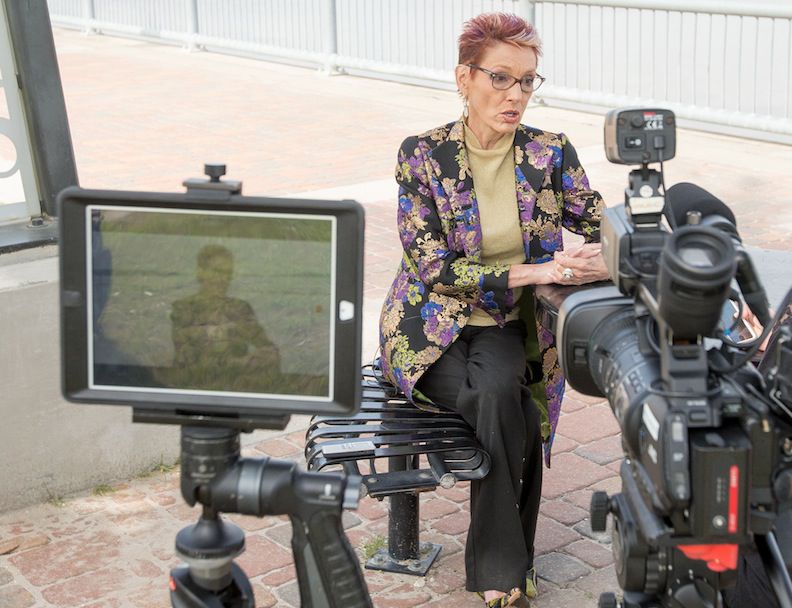Federal judge retires to treat severe alcoholism
Published 7:44 pm Sunday, December 31, 2017
When U.S. District Court Judge Patricia Minaldi stepped down from the bench in April, it was after a roller coaster of a year for her that included taking medical leave, a stint in a Florida rehab center, an emergency temporary interdiction granted against her, and being diagnosed with a brain disorder.
Minaldi, 58, began her disability retirement on July 31 when her medical leave ended after serving as a federal judge since 2003.
She had been removed from more than two dozen cases after a trial she presided over a year ago ended abruptly.
The judge was previously removed from a string of cases in early 2017. No reason was given at that time for the case reassignments. But Tony Moore, a federal clerk of court, said Minaldi had been off the bench for some time for “medical reasons.”
Minaldi told the American Press in April that she had taken medical leave from the bench to get her alcoholism under control.
“So far, I’m winning that battle, and I intend to win it for the rest of my life.”
Minaldi has been diagnosed with Wernicke-Korsakoff syndrome, a brain disorder caused by alcohol abuse. She said it affected her behavior outside the courtroom “to a startling extent,” and she vowed to “go down fighting” the disorder, which she said has no cure.
“There is no treatment for it,” she said. “You just have to not drink. And that is my intent for the rest of my life.”
Glen Vamvoras, Minaldi’s attorney, said at the time that Minaldi will “fight her alcohol addiction zealously” and prevail.
“She is a very smart, caring woman who has elevated herself to one of the highest positions in our society,” Vamvoras said. “Most people have no idea the amount of stress and anguish that good judges deal with on a daily basis. And she loves this community.”
Minaldi said the stress of difficult cases in her long legal career caught up to her, “and I didn’t handle it properly. But I intend to from this day out.”
She acknowledged that some of her rulings on the bench might be challenged now but that those challenges would lack merit.
“I’m not going to downplay the alcohol problem,” Minaldi said. “If there ever was an indication that I was unable to handle my duties because of alcohol — after-effects or current effects — proceedings did not go forward,”
Court records show that Minaldi, who pleaded guilty to first-offense DWI in 2014, arrived at the 12 Keys Rehab Center in Florida on Jan. 4 after being ordered by U.S. 5th Circuit Court of Appeals Judge Carl E. Stewart to complete at least 90 days of treatment.
She was discharged on Feb. 1 with the help, she said, of Kathleen Kay, a longtime friend who worked under her as federal magistrate judge in the Western District of Louisiana court.
“Unfortunately, I had an assistant who was not really taking care of me and basically dumped me at the facility in Florida,” Minaldi said. “And in order to get me back here to Lake Charles, (Kay) decided to take the action she did regarding the power of attorney.”
But as grateful as she is to Kay for removing her from that situation, Minaldi said Kay’s filing in March of interdiction proceedings against her was “overreaching and absolutely not necessary.”
In turn, Minaldi revoked, on March 18, the general and medical powers of attorney she had granted Kay in 2007.
The interdiction proceedings had been sealed from public view until an agreement between the American Press — which had a motion to unseal pending in state district court — and the attorneys involved led to an order signed for its partial opening.
Minaldi said although the information released was private, she understood her role as a public figure.
“Am I happy about it? Not really. But (the public has) the right to know,” she said. “And we knew that it was going to be released eventually, so it would just consume time and energy to fight it.”
Minaldi expressed optimism about her future.
“I was very, very fortunate God put me in a position that I could handle cases that made an impact on the community,” she said. “It was a wonderful experience, and I will never forget that.”
Minaldi said she has continually worked to make the community a “safer place to live” and that she will “continue to do that in one form or another in the future.”
A federal judge is appointed for life but can leave the bench by resignation, retirement or through impeachment by Congress. The current compensation for federal judges is $205,100 a year.
Minaldi will draw her full salary for life since she retired on disability and was a federal judge at the time.
Retired U.S. District Court Judge Patricia Minaldi gives a sit-down interview on Good Friday in 2017.






